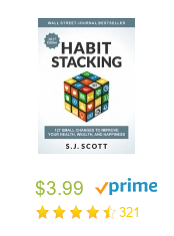
7 Tip-Offs On Getting Insurance For Your Home And Property

The Importance Of Property Insurance
As a homeowner, one of your responsibilities is ensuring that your house and other assets are properly insured. Having insurance is a huge help, especially in case there are unfortunate accidents, like fires or natural calamities, which could do some significant damage or even totally destroy your entire property. So, how important is an insurance? Below, you will find more details that will open your eyes to the importance of insurance. After you read this, you will probably be inspired to take a good look at your property and consider what insurance options you may have.

1Insurance Often Include Home Appliances
It's possible that some of your home appliances are already insured; and, in several home sales, sellers typically shoulder the cost of a home warranty. This type of insurance protects the buyer and ensures that appliances and other current systems, which often include water heaters and air conditioning systems but not computers and other electronic tools, are working well. In case something breaks down, call a repair shop who will fix the problem for you for a small deductible fee that's usually less than $50. If it's no longer possible to repair the appliance, you could still obtain an allowance for it.
After a year has elapsed, you can extend your plan for an additional year or two. Keep in mind that the older a house or an appliance is, the higher the possibility of this breaking down. Thus, it's best for an insurer to maintain lower premiums.

2Contemplate On Self-Insuring
Once you purchase a new house, it's but natural to want to avoid other charges, even insurance. And, did you know that your insurance can become very expensive if you choose a separate coverage for each gadget or appliance? Perhaps, you should consider self-insuring particularly if your premium is about 20% of the cost. To illustrate, let's say that instead of spending $1300 a year on appliance insurance, perhaps it's better to have an account that will gain some interest.
Considering that nothing breaks down, you will have about $6500 in your account in five years, and you can then use the money to buy brand new appliances. In case something does break down, you can withdraw money from that account for repairs. Many dealers are aware of this strategy. It is because of this that insurance agents earn a higher commission when selling insurance; it's usually higher than the amount that they earn when they sell an actual appliance.

3Consider Appliance Insurance
In general, buyers eliminate the insurance on their appliances after five years, as they believe that it's no longer worth it to have coverage on older items. However, the older the appliance, the more money you'll need for repairs, which means you'll likely need insurance coverage then. Let's assume that the appliance still works well, and it will be the same as paying for it twice - when you purchased it and when you had it insured.
In the same vein, a lot of tenants mistakenly believe that the insurance of their landlords will be enough to cover their personal items too in case something bad happens to their rented properties, like a fire or a natural disaster. The truth, in some cases, is that the landlord could help in covering your losses, such as computer, clothing, or furniture, but not all.

4For Renters, Get A Renter's Insurance
The truth is that you need renter's insurance. Landlords are typically not responsible for the possessions of their tenants, even though an accident happened that's not due to the tenants' negligence. Thus, it's recommended for renters to get renter's insurance for their personal property.
Getting insurance is definitely a smart move. In case you fail to get coverage for your possessions, and a fire happens, you lose everything. Still, a significant percentage of renter's do not have property insurance. They believe that they don't really need it because accidents, like fires, seldom occur, or probably don't know what they should be doing.
Many are also under-insured. When you obtain fire insurance, the company you approach will discuss specific issues with you and talk to you about how much coverage or what type of coverage you prefer. However, some fail to ask directly, which can cause many problems in case a bad accident does occur.

5Closely Examine Fire Insurance Policies
Some insurance company representatives may say this: "Well, your home is 2000 square feet, and our table shows that the average cost of replacing your property in case of a fire is $100 per square foot. Some will cost $125 or more, depending on the cost of construction, such as custom construction which usually costs about $150. As for your house, it's between average and above average; thus, the likely cost to have it insured will be around $100 to $125 per square foot. In case your lender finds the $100-per-square-meter coverage satisfactory, would you be amenable to that?" Most homeowners will opt for additional coverage until they see how much the premium will cost them.
Premiums differ from one policy to another. The variance could be more than a few hundred dollars, in some instances. Because of the high premium costs, many homeowners opt for a lower coverage plan and hope that nothing untoward or catastrophic happens to their home.

6Get Coverage With The Right Amount
In case something disastrous happens, and your property sustains significant damage, it's possible that you may not have enough coverage to rebuild. This is a grave issue that many have to face, especially those who do not have insurance or those who have opted for minimum coverage. Most companies make sure that their policies are well matched with construction costs, although some don't.
To illustrate, let's say that the replacement cost was $100 per square foot when you bought your insurance. Remember that construction costs steadily increase; the amount used to build one square foot today will not be enough to create the same size in a few years. You will definitely find yourself under-insured and at a disadvantage if your replacement insurance coverage remains as is, meaning it does not increase with the costs of construction. Keep in mind that you must get insurance for your property for the right amount. Also, the title company often includes insurance coverage with the sale when you do buy a lot or a piece of land.

7Look Into Your Title Insurance Coverage
It's best to have title insurance that also covers mortgage costs, but it's not necessary for the title insurance to also include the owners of a particular property. The title insurance can cover both you and your lender. However, it sometimes works the opposite way. It helps you to avoid title issues that occurred before you purchased the property.
Let's say that two sellers forged the signatures, and you will save money and time and avoid stress with title insurance. This is one main reason why you should get title insurance that covers not only your mortgage but also the down payment. Visit the title company responsible for issuing your insurance and inquire about what it includes, in case you are not sure yet -- perhaps it only covers the financing value. You can actually increase the coverage to match the total property value, which is highly recommended. Do this before escrow closes, although you can also do this afterward.
In getting insurance, homeowners or renters need to consider several crucial factors. It is true that insurance is an added expense, but it is a prudent move to have coverage if you look at the overall picture. In case of fire or any natural disasters, your insurance can help you to repair, replace, or even rebuild.
About Author
Jackie Wing
GET THE FREE MAGAZINE DELIVERED STRAIGHT TO YOU:









































